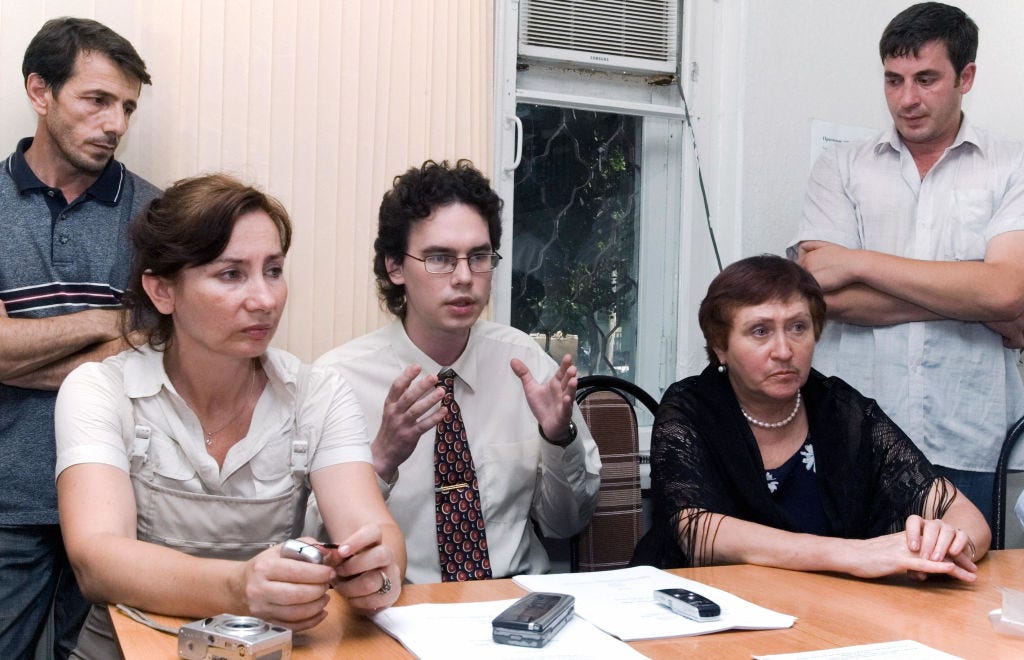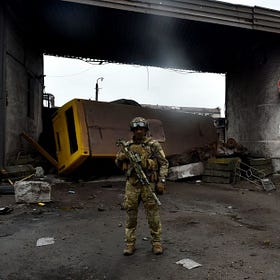Killed for telling the truth. Remembering Natalia Estemirova
15 years ago Russian human rights activist Natalia Estemirova was kidnapped and killed in Chechnya. In a deeply personal piece, her daughter Lana remembers the day her life has changed forever.
By Lana Estemirova.
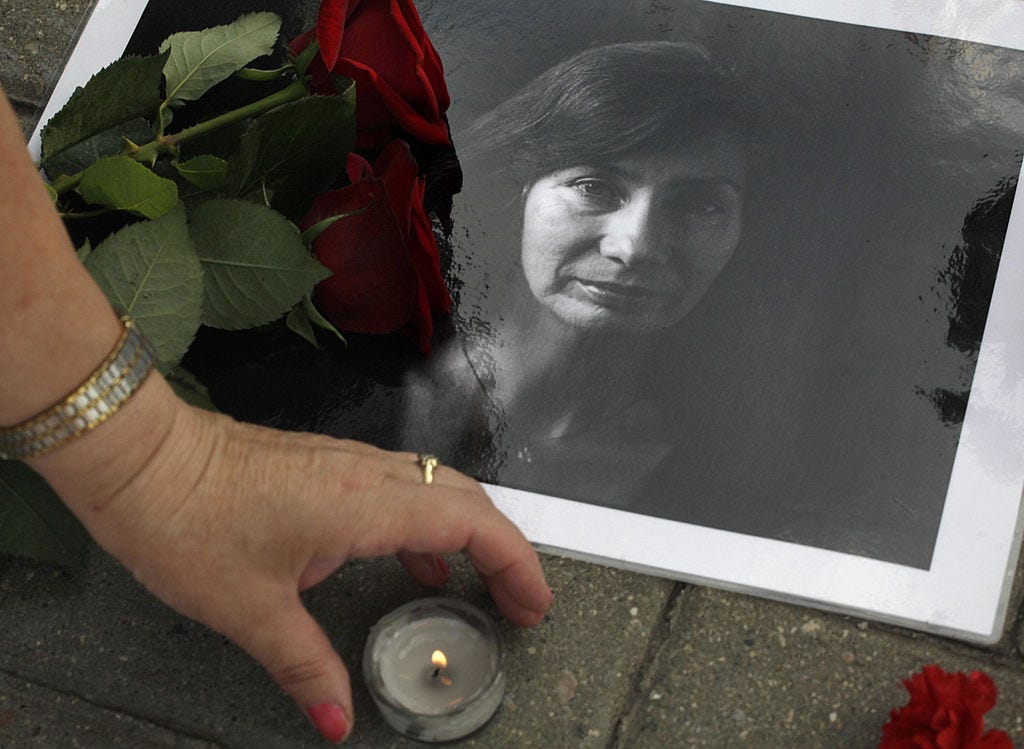
Exactly fifteen years ago, on 15 July 2009, my mother, Natalia Estemirova, was kidnapped outside our house in Grozny, Chechnya and taken to an impromptu execution site, where she was shot dead. I was fifteen when she was assassinated; she was fifty-one. Now, half of my life has passed without her – and her murderers still walk free.
My mother was the beating heart of Memorial: a Russian civil rights organisation that was awarded the Nobel Peace Prize in 2023. As the anniversary of those hauntingly intertwined numbers—one and five—draws closer, I once again find myself contemplating the hold those two numbers have had over my life and how my mother’s life, murder and the impunity that followed it tell the story of Putin’s Russia.
It is not just the impending anniversary that leaves me feeling reflective but another major life event too — I’m about to become a mother myself. How do I tell my daughter the story of the homeland she cannot visit, of the country that doesn’t exist, of her exceptional, loving grandmother that she’ll never get to meet? How do I reconcile the joy of motherhood with the exhaustion of being unable to separate myself from this violence, from family and friends continuing to be killed, imprisoned and exiled?
As I write in the opening chapter of my upcoming book ‘Please, Live!’: “Our family never had a chance to be bystanders to history – we found ourselves in the middle of the storm. Somehow, despite this, the branches of my family tree grew and twisted, creating new life against the odds.” My daughter will be the latest branch in this tree – our family epic bound up with the fate of Chechnya and a story of unchecked violence that turned a small restive republic into a feudal kingdom ruled by its Kremlin-installed overlord, Ramzan Kadyrov.
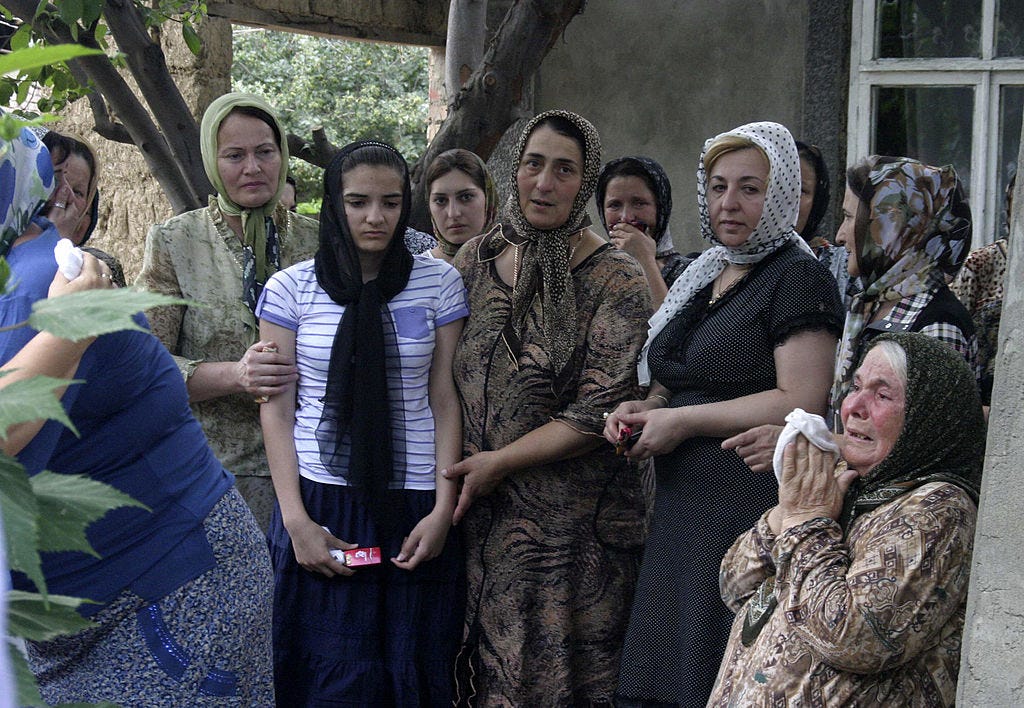
When Russia launched its full-scale invasion of Ukraine on 24 February 2022, over-confident experts and politicians who were caught off-guard scrambled to find an answer to the question: ‘How could this have happened? How did we miss it?’ Those who paid close attention were long aware of the pattern of violence and chauvinism that Russia has exhibited for decades — from the short-lived conflict with Georgia in 2008, to aiding Assad’s onslaught against his population in Syria. But it was the First and Second Chechen Wars fought in 1994-1996 and 1999-2009 where Russian troops honed their skills for massacres, ‘cleansing’ operations, bombing civilian infrastructure and setting up filtration camps that were nothing more than torture chambers.
At the end of February 2001 — nearly twenty years before Bucha — a mass grave was discovered close to the notorious Russian Khankala military base in Chechnya. Because they were running out of space on the base, the soldiers used empty nearby holiday resorts to dispose of the bodies of kidnapped Chechen men accused of terrorism. Many were not even buried but simply scattered all over the place and left to rot with their hands tied behind their backs. There were around two hundred dead, some of the corpses missing ears – a popular trophy for Russian troops – and barely identifiable because they were half-eaten by dogs.
Years later, an email belonging to one of the FSB officers involved was hacked, revealing his links to this mass grave and other war crimes. In his private correspondence, the officer boasted about his service in Chechnya and how at the start of the second war, he participated in a ‘cleansing operation’ in Mesker-Yurt, a village close to the Khankala military base. His name came up in relation to multiple kidnappings of Chechen men whose corpses turned up in that holiday resort and many disappearances after that. That FSB officer calls himself Igor Strelkov, it’s also the name remembered by the relatives of his victims. His real name is Igor Girkin and in 2022 he was sentenced to life imprisonment in absentia for the shooting down of flight MH17, an airliner full of civilians above eastern Ukraine using a BUK missile.
This gruesome story is another illustration of impunity breeding impunity, the butchers of Chechnya turning into the butchers of Ukraine. It’s why during both wars, the role played by Memorial and local activists such as my Mum was indispensable. My mother would travel from village to village, devastated by bombings and Russian vodka-fuelled raids, to collect testimonies from the victims and their families. She would besiege military offices in the hope of rescuing men who had been wrongfully detained. Often - through sheer stubbornness and determination – she succeeded, helping to return severely beaten and tortured victims back to their families. Even though only a handful of Russian soldiers were prosecuted in Russia for murder and enforced disappearances, Memorial successfully took hundreds of cases to the European Court of Human Rights and helped families achieve some form of justice.
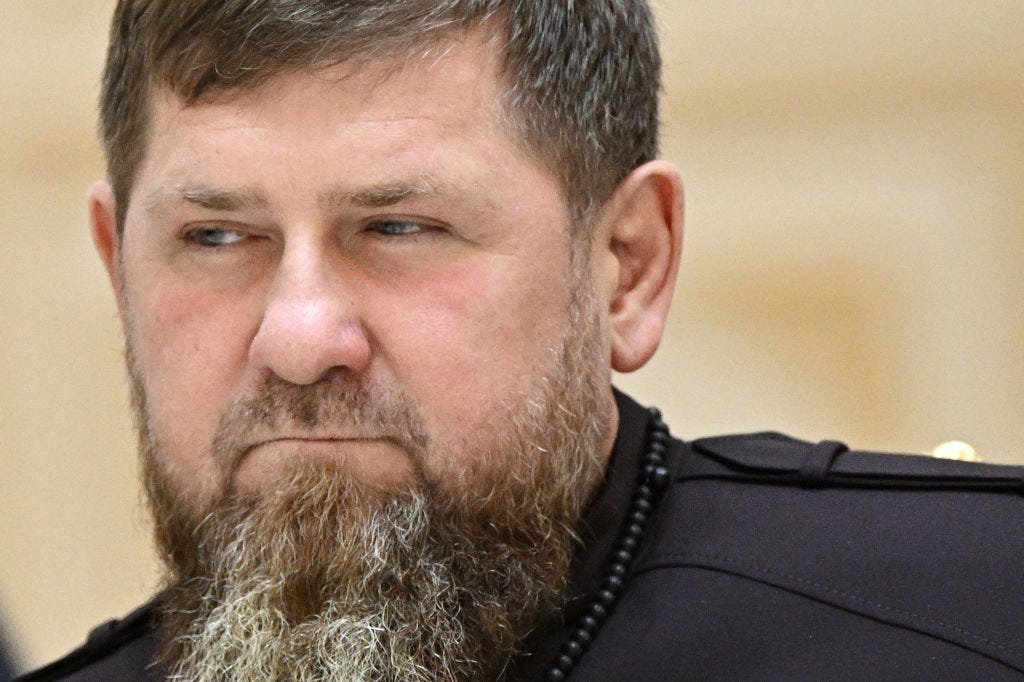
Once he officially became the president of Chechnya in 2007, Kadyrov ruthlessly disposed of his political opponents and let it be known that anyone who criticised him would meet a bad end. Local journalists and human rights activists were expected to toe the line, something my mother refused to comply with. She refused to walk the main avenue of Grozny that was conveniently close to the Memorial office when it was re-named Putin Avenue. She refused to put on a headscarf after an edict was introduced forcing women to cover their hair in official buildings. She didn’t flinch when Kadyrov summoned her to his office and screamed in her face. after she criticized his headscarf edict on national TV. “ I could be your mother,” she reprimanded him, as he hurled threats at her, dropping hints that he knew where I went to school.
In the face of Kadyrov’s threats, she continued to investigate human rights violations in Chechnya and write articles in the national press under her own name. In mid-July 2009, she unknowingly crossed a red line by exposing the public execution of a villager named Rizvan Albekov by Chechen law enforcement. After her article was published, an order was given and an invisible timer had started to count down the days, hours, minutes to her murder.
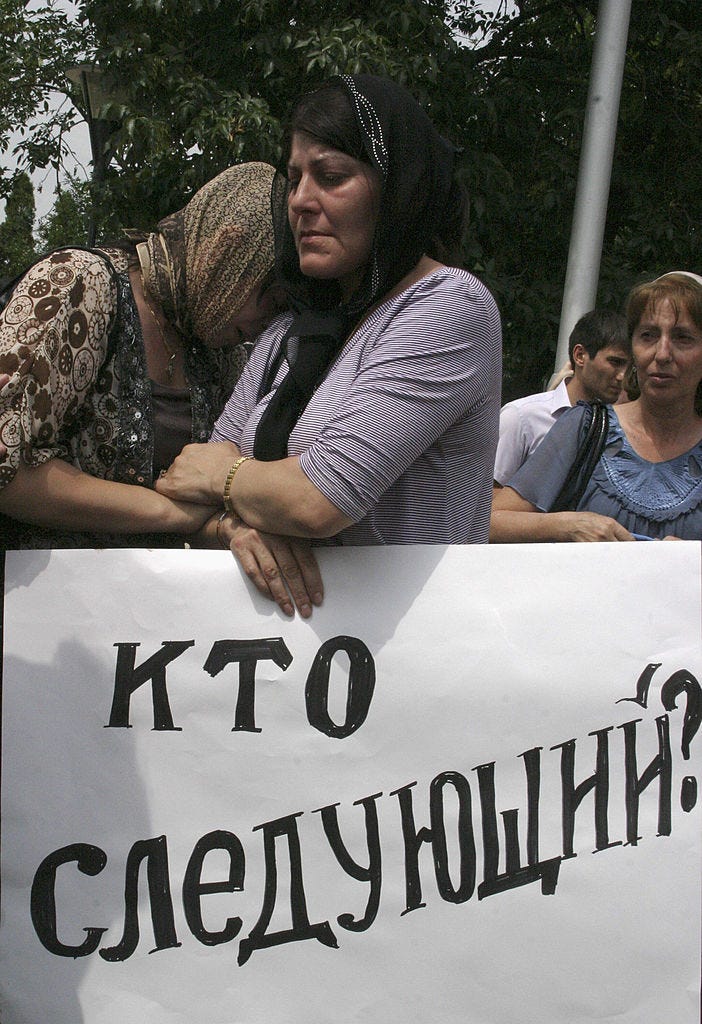
Since the moment my mum’s bullet-ridden body was discovered on the side of a dusty motorway, her vibrant, courageous life was instantly overshadowed by the macabre details of her death. Despite the best effort of her friends of colleagues, not a single perpetrator has been held responsible.
Now, whenever I see a video of Ramzan Kadyrov’s puffy face with maroon cheeks and dull, stilted gaze, whenever I read that he’s been diagnosed with a terminal illness and is scrambling to appoint his teenage sons as ministers, I wonder if he can hear the countdown of that invisible timer. It’s hard to accept the fact that he might never face his day in court but part of me is content knowing that he’ll never be able to find peace on either side of the grave.
A lot has changed in the half of my life I will have spent without my mother on 15 July 2024. I’m thirty years old - twice fifteen - I’m a citizen of a different country to the one I was born in; I speak and write in a different language to the one my mother taught me, and I rarely dream in Chechen. I had to learn to live without my Mum, but I’m determined she will be a part of my daughter’s life. When she’s old enough, my daughter will read the book that I’m rushing to finish editing before she’s born. Until then, I’ll tell her stories, just like my ancestors did to preserve their culture through famine, deportations and war. In those stories, her grandma will never be a damsel in distress waiting to be saved but what she always was - a selfless hero, slaying the monsters.
The views expressed in this article are the author’s own and do not necessarily reflect the position of the BBC.
Read this story in Russian here.
From Starbucks to steelworks: How a businessman linked to Ramzan Kadyrov benefited from the war in Ukraine
BBC investigation shows that entrepreneurs linked to the Chechen leader have started to receive assets from the captured Ukrainian cities.





